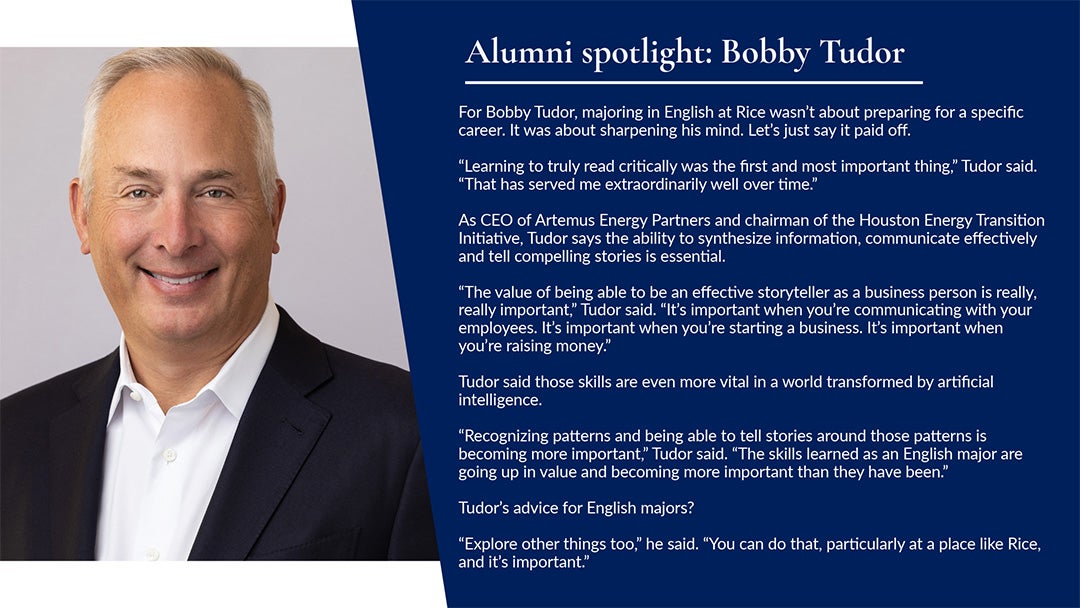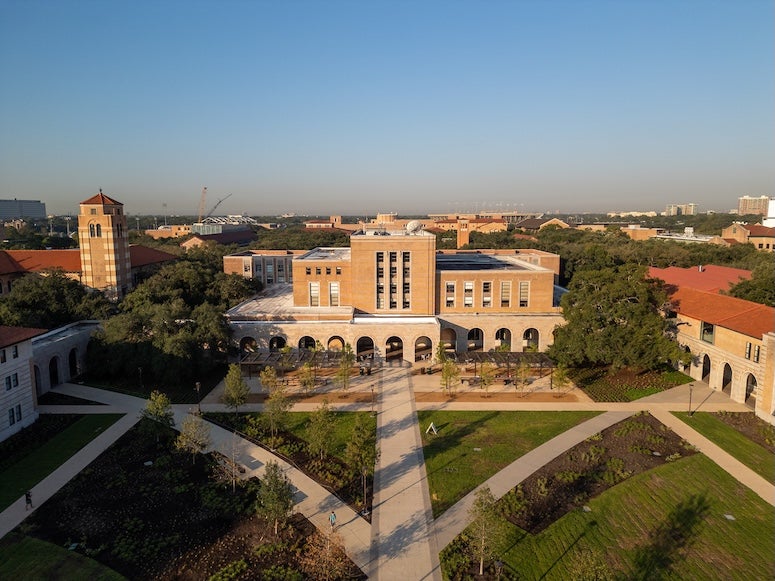At Rice University, the Department of English is thriving — reaching higher than ever before in national rankings and drawing students into one of the most diverse and dynamic majors on campus. While national narratives have often painted the humanities as a risky investment, Rice’s English program offers a clear rebuttal: Studying literature and language doesn’t limit your career possibilities. It multiplies them.
The program offers students a rare combination of close-knit community, interdisciplinary opportunity and a strong undergraduate research culture as well as creative outlets. With faculty whose expertise includes medieval romance, 21st-century pop culture, creative writing, literary history and cultural studies, the department fosters intellectual agility and creative experimentation through what chair Alexander Regier describes as a “creative and critical” foundation.
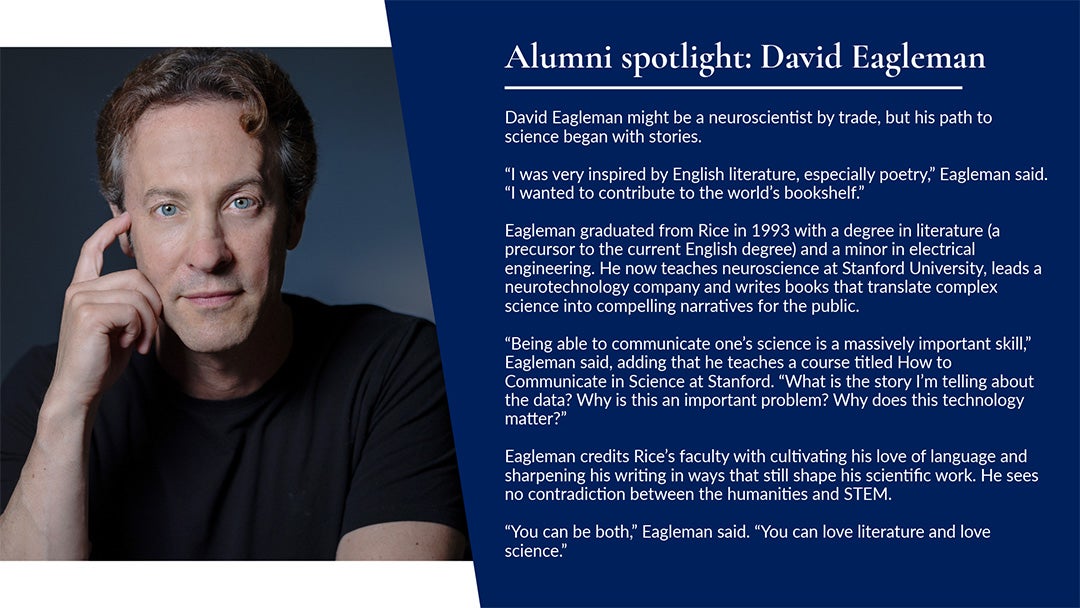
“You can do so many things with an English major because what you’re learning is so absolutely fundamental to a lot of professions,” said Regier, the William Faulkner Professor of English and professor of modern and classical literatures and cultures. “You could become a judge. You could become an author. You could become a blogger. You could become a PR manager or a policy analyst or a technical writer or a journalist or a podcast producer.”
The department’s innovative curriculum opens pathways for students not only to master complex texts but also to craft their own narratives. At the core of this adaptability is the department’s emphasis on language: how it works, how it shapes thought and how it influences action. English majors at Rice don’t just learn how to write.
“They learn how to recognize complexity, navigate ambiguity and communicate with clarity and purpose,” Regier said.
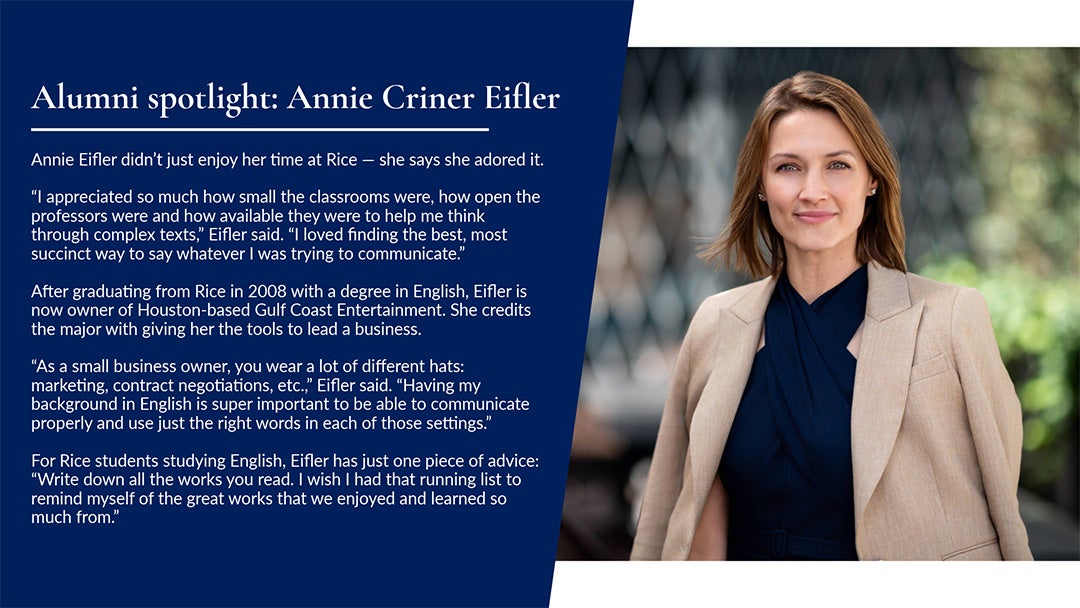
This comfort with complexity prepares students for the world in profound ways. Whether analyzing narratives in the media or shaping legislation with precision, Rice English students gain fluency in a skill set that’s increasingly valuable in a data-saturated, artificial intelligence-influenced world.
“If you want to think intelligently about AI, you have to think about it as a linguistic experiment,” Regier said. “Who better to do that than people who have thought about and learned how to manipulate, analyze and craft language?”
That focus on language’s power — whether in literature, media, technology or law — is what distinguishes English from other fields and gives its graduates a competitive edge. The program’s research expectations span archival exploration, cultural critique and digital innovation. Rice students are encouraged to test their ideas in Houston’s literary and cultural scene and to participate in the department’s strong undergraduate research culture.
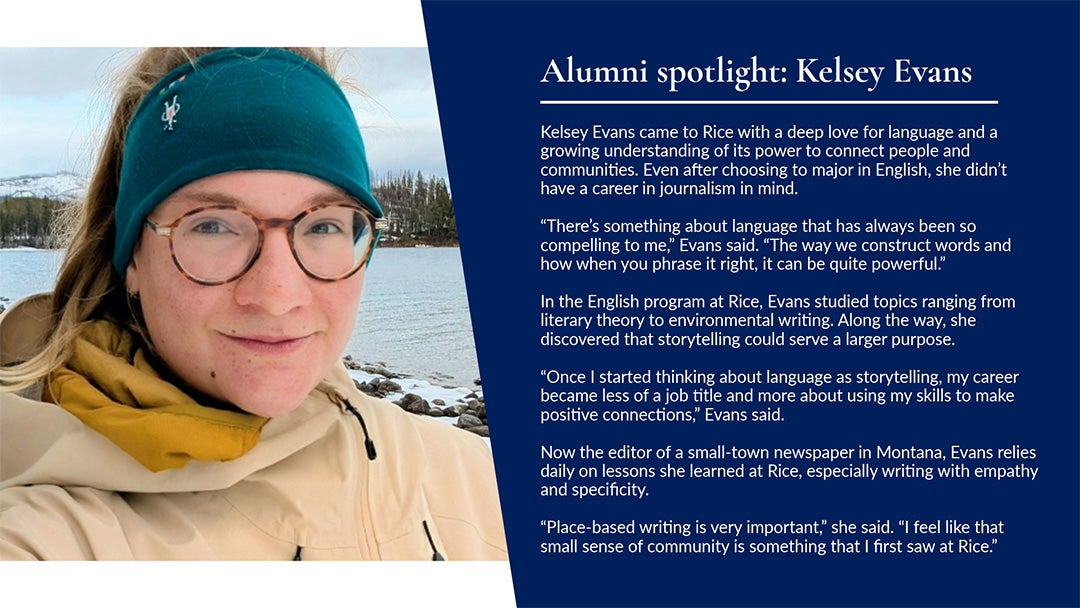
Flexibility is another defining feature. Rice students often double-major in English and another field or pursue minors in English or creative writing, one of the School of Humanities’ most popular programs. This pairing of disciplines enhances students’ marketability whether they’re headed to law school, business school, medical school or any number of career paths.
“You need to know something about language if you’re going to become a lawyer,” Regier said. “You need to know something about language if you want to become a journalist or a science writer or work in education or counseling or policy.”
The English department’s broad course offerings reflect the same expansive vision. A student might study the poetry of William Blake during one semester and dissect pop culture narratives or hip-hop feuds the next, all within a curriculum unified by the analytical and creative power of language.
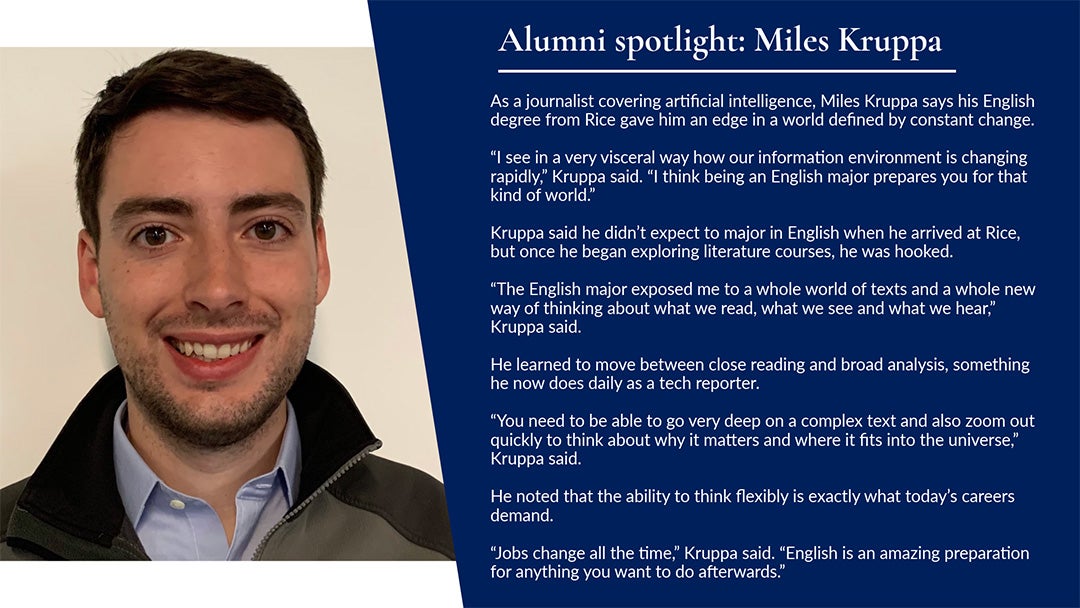
“Our courses examine how cultural forms and legacies shape our imagination and craft creative visions of the possible,” Regier said.
It’s this versatility paired with a clear intellectual throughline that allows English majors to thrive across disciplines, industries and over time. Regier believes the long-term value of the major is only becoming more evident.
“People say you can do everything with an English degree,” he said. “That versatility is connected to methods and insights that touch and apply to all of us as well as shape our lives. In that sense, more than becoming a jack of all trades, as an English major you build a skill set that you can apply and expand wherever you go next.”
Learn more about English studies at Rice by clicking here.
